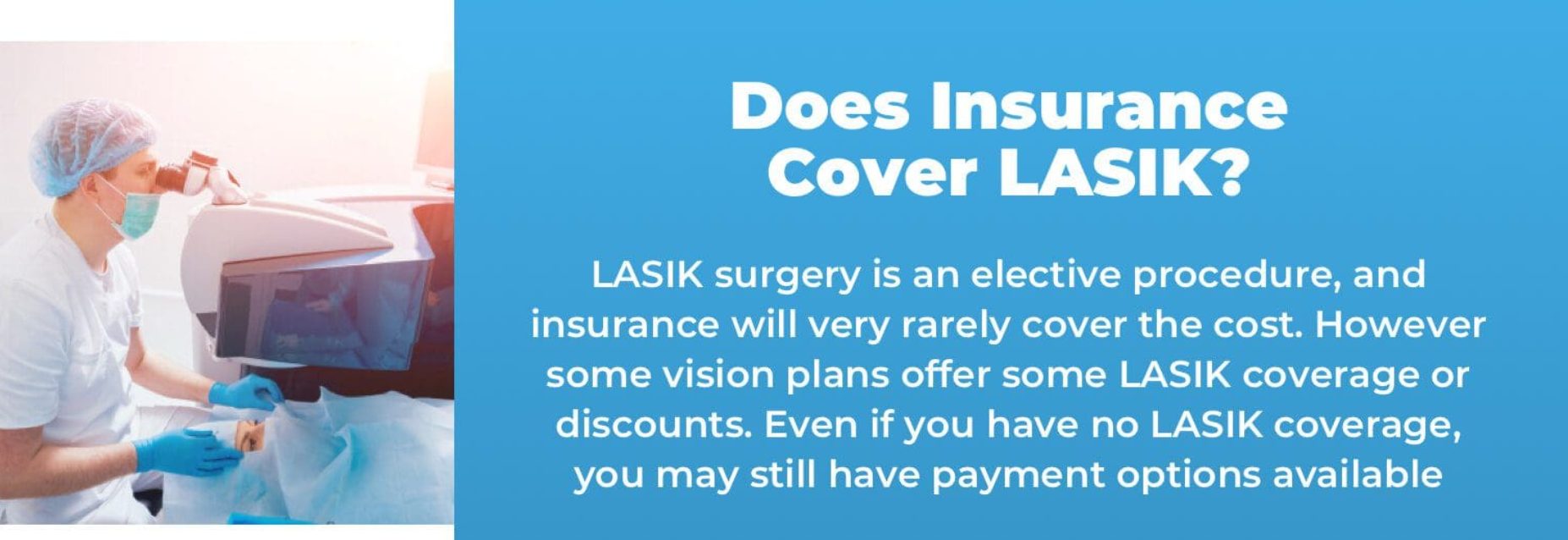Contents
Unraveling the Complexities of Vision Care Coverage under Medi-Cal
LASIK eye surgery has become a popular solution for individuals seeking freedom from glasses and contact lenses. However, the high cost of this procedure often leaves many questioning whether their health insurance, such as Medi-Cal, will cover it. In this comprehensive article, we will delve into the intricacies of Medi-Cal coverage for LASIK surgery, exploring the factors that influence eligibility, the potential benefits, and alternative options available.
Understanding Medi-Cal and its Vision Coverage
Medi-Cal is California’s Medicaid program, providing health insurance coverage to low-income individuals and families. While Medi-Cal offers some vision benefits, the extent of coverage can vary depending on the individual’s specific plan and circumstances.
Generally, Medi-Cal covers routine eye exams, eyeglasses, and contact lenses for eligible beneficiaries. However, LASIK eye surgery is typically considered an elective procedure and is not covered under standard Medi-Cal benefits. This is because LASIK is primarily aimed at improving vision quality and convenience rather than addressing a medically necessary condition.
Exceptions to the Rule: When Medi-Cal Might Cover LASIK
While LASIK is not routinely covered by Medi-Cal, there are certain exceptions where coverage might be possible. In these cases, the surgery must be deemed medically necessary to treat an underlying medical condition or injury.
Some examples of situations where Medi-Cal might consider LASIK coverage include:
- Severe refractive errors: If an individual has a very high degree of nearsightedness, farsightedness, or astigmatism that cannot be adequately corrected with glasses or contact lenses, LASIK might be considered medically necessary.
- Anisometropia: This condition involves a significant difference in refractive error between the two eyes, which can lead to difficulties with depth perception and binocular vision. LASIK might be considered if glasses or contact lenses fail to adequately address the issue.
- Complications from previous eye surgery or injury: If an individual has undergone previous eye surgery or experienced an eye injury that has resulted in significant visual impairment, LASIK might be considered a medically necessary treatment option.
It’s important to note that even in these exceptional cases, prior authorization from Medi-Cal is typically required before the surgery can be covered. The patient’s eye doctor will need to submit detailed medical documentation demonstrating the medical necessity of the procedure.
The Role of Prior Authorization in Medi-Cal Coverage for LASIK
Prior authorization is a process in which Medi-Cal reviews a proposed treatment or procedure to determine whether it is medically necessary and meets the program’s coverage criteria. This process helps ensure that Medi-Cal resources are used appropriately and efficiently.
When seeking Medi-Cal coverage for LASIK, the following steps are typically involved in the prior authorization process:
- Consultation with an Eye Doctor: The patient must first consult with an eye doctor who is enrolled in the Medi-Cal program. The doctor will conduct a thorough eye exam and evaluate the patient’s medical history to determine whether LASIK is medically necessary.
- Submission of Medical Documentation: If the eye doctor believes that LASIK is medically necessary, they will submit a prior authorization request to Medi-Cal, along with detailed medical documentation supporting the request. This documentation might include:
- The patient’s medical history
- Results of the eye exam
- Explanation of why glasses or contact lenses are not a suitable option
- Expected benefits of LASIK surgery
- Medi-Cal Review: Medi-Cal will review the prior authorization request and medical documentation. They may also consult with an independent medical reviewer to assess the medical necessity of the procedure.
- Decision: Medi-Cal will issue a decision on the prior authorization request. If the request is approved, the patient can proceed with LASIK surgery and Medi-Cal will cover the cost. If the request is denied, the patient has the right to appeal the decision.
Navigating the Appeals Process if Coverage is Denied
If Medi-Cal denies a prior authorization request for LASIK, the patient has the right to appeal the decision. The appeals process typically involves submitting additional medical documentation or requesting a hearing before an administrative law judge.
It’s important to consult with an attorney or patient advocate who specializes in Medi-Cal appeals if coverage for LASIK is denied. They can help guide the patient through the appeals process and ensure that their rights are protected.
Potential Benefits of LASIK Surgery
LASIK surgery offers several potential benefits for individuals with vision problems:
- Improved vision: LASIK can significantly improve vision, reducing or eliminating the need for glasses or contact lenses.
- Enhanced quality of life: Improved vision can lead to increased confidence, independence, and overall quality of life.
- Convenience: LASIK eliminates the hassle of wearing and caring for glasses or contact lenses.
- Cost savings: While the initial cost of LASIK can be high, it may lead to long-term cost savings by eliminating the need for glasses, contact lenses, and associated care products.
- Safety: LASIK is a safe and effective procedure with a high success rate.
Alternative Options for Vision Correction
If Medi-Cal coverage for LASIK is not available, there are several alternative options for vision correction:
- Glasses: Glasses are a common and affordable way to correct vision problems.
- Contact lenses: Contact lenses offer a more discreet option for vision correction.
- Other refractive surgeries: Procedures such as PRK (photorefractive keratectomy) or SMILE (small incision lenticule extraction) might be considered if LASIK is not an option.
It’s essential to discuss all available options with an eye doctor to determine the best course of action for your individual needs and circumstances.
Financial Assistance Programs for LASIK
If you are considering LASIK but are concerned about the cost, several financial assistance programs and financing options might be available:
- CareCredit: CareCredit is a healthcare credit card that offers special financing options for medical procedures, including LASIK.
- Flexible Spending Accounts (FSAs) and Health Savings Accounts (HSAs): These tax-advantaged accounts can be used to pay for eligible medical expenses, including LASIK.
- Manufacturer rebates and discounts: Some LASIK providers offer rebates or discounts on the procedure.
- Payment plans: Many LASIK providers offer payment plans to make the procedure more affordable.
It’s important to research and compare different financing options to find the best fit for your budget.
The Importance of Choosing a Qualified LASIK Surgeon
If you are considering LASIK surgery, it’s crucial to choose a qualified and experienced surgeon. Look for a surgeon who:
- Is board-certified: Board certification indicates that the surgeon has met rigorous standards of training and experience.
- Has extensive experience performing LASIK: The more experience a surgeon has, the better equipped they are to handle any potential complications.
- Uses the latest technology: LASIK technology is constantly evolving. Choose a surgeon who uses the most advanced and safest equipment.
- Provides personalized care: A good LASIK surgeon will take the time to understand your individual needs and goals and develop a customized treatment plan.
Don’t hesitate to ask questions and get multiple opinions before choosing a LASIK surgeon.
Conclusion
While Medi-Cal coverage for LASIK eye surgery is generally limited to medically necessary cases, exploring all available options and understanding the prior authorization process can increase your chances of obtaining coverage. If Medi-Cal coverage is not possible, consider alternative vision correction options or explore financial assistance programs to make LASIK more affordable. Remember, choosing a qualified LASIK surgeon is crucial for ensuring a safe and successful procedure.
Read More: Go Medicare Commercial: A Deep Dive into the Marketing Strategy Behind Medicare Advantage Plans







